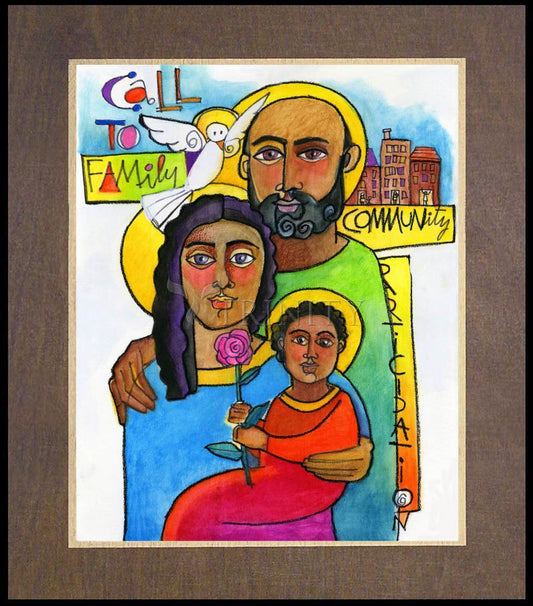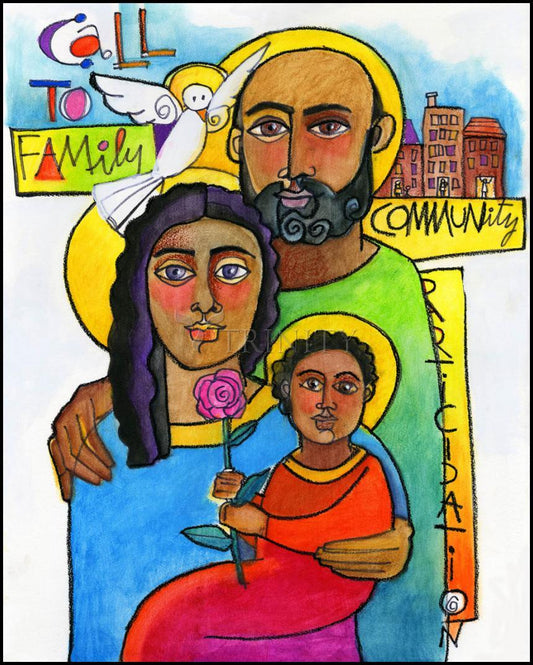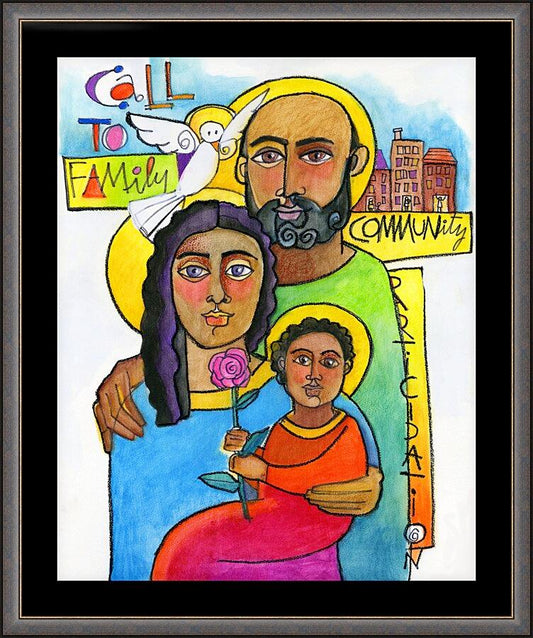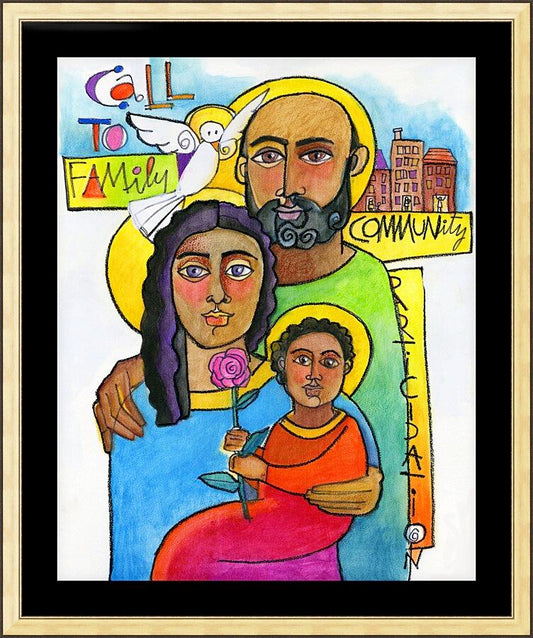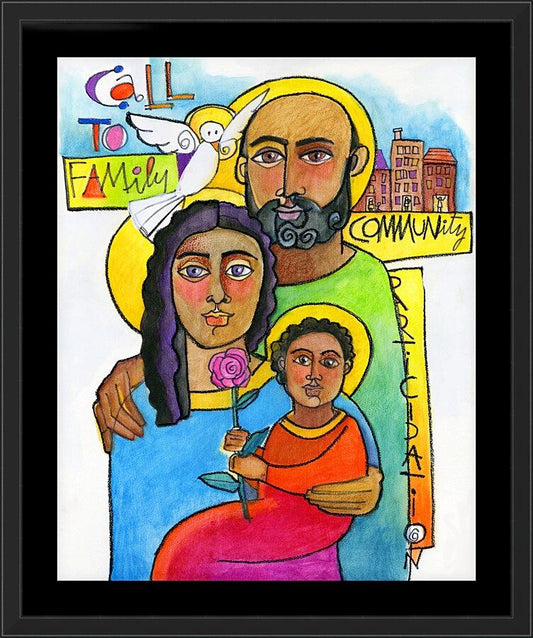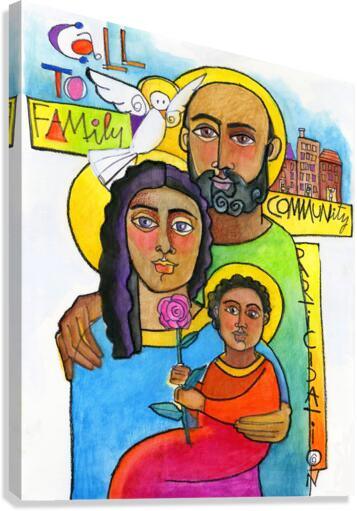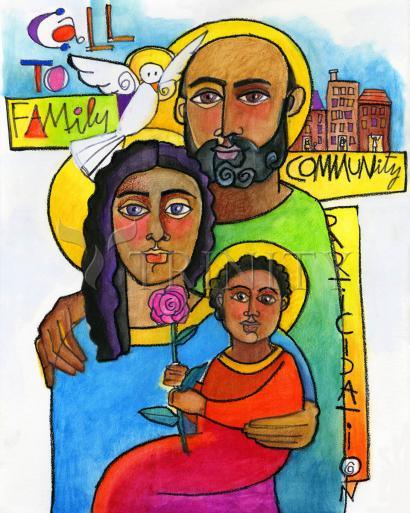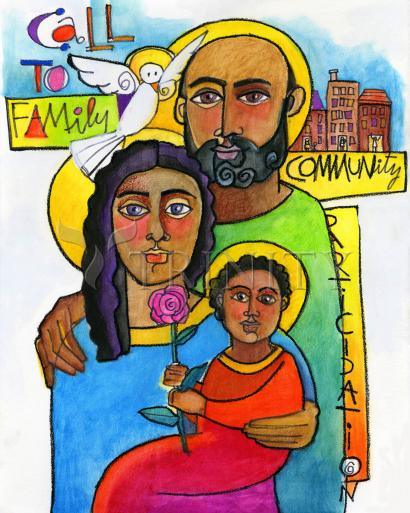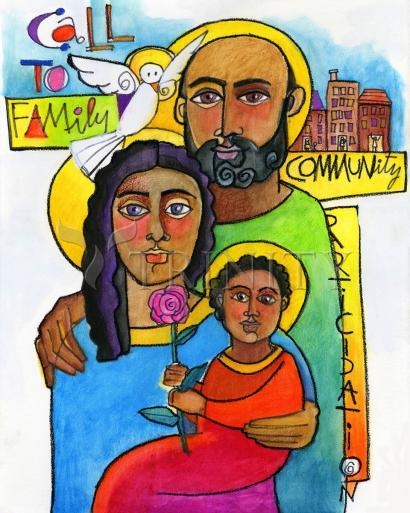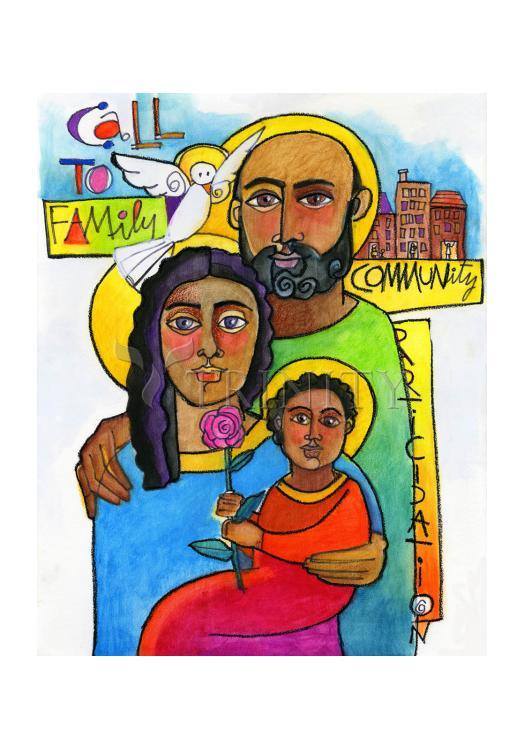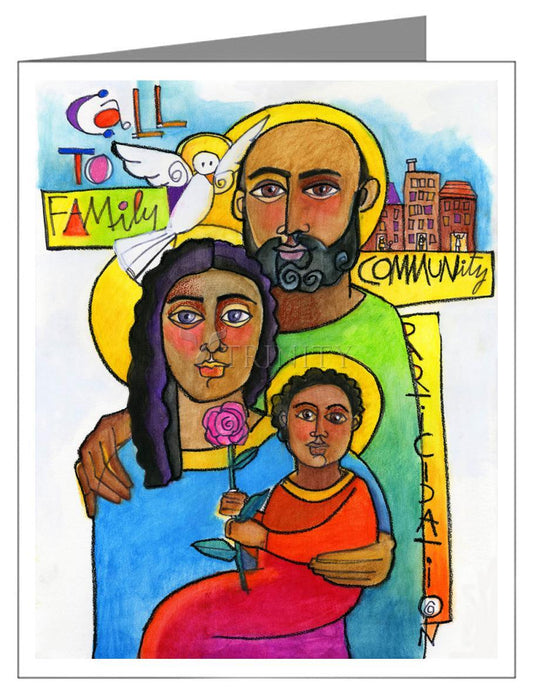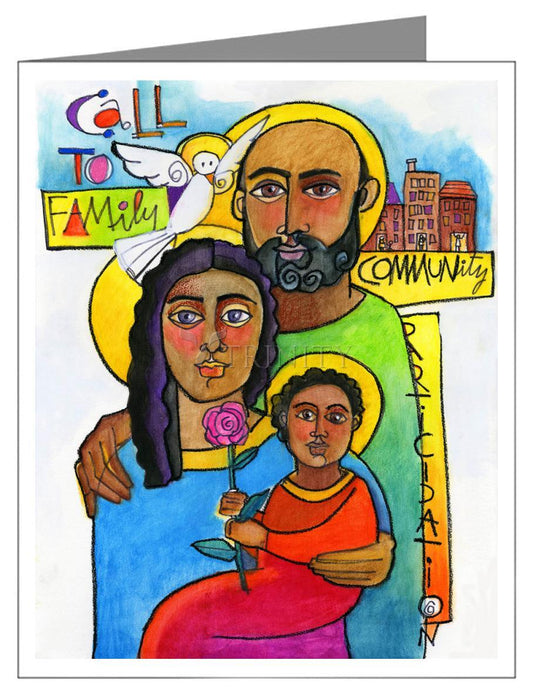Family
Economic and social policies as well as organization of the work world should be continually evaluated in light of their impact on the strength and stability of family life. The long-range future of this nation is intimately linked with the well-being of families, for the family is the most basic form of human community. Efficiency and competition in the marketplace must be moderated by greater concern for the way work schedules and compensation support or threaten the bonds between spouses and between parents and children.
Economic Justice for All, #93
The first and fundamental structure for a "human ecology" is the family" founded on marriage, in which the mutual gift of self creates an environment in which children can be born and develop their potentialities, become aware of their dignity and prepare to face their unique and individual destiny.
On the Hundredth Year (Centesimus Annus"), #39
Community/Participation
But God did not create man as a solitary, for from the beginning "male and female he created them" (Gen. 1:27). Their companionship produces the primary form of interpersonal communion. For by his innermost nature man is a social being, and unless he relates himself to others he can neither live nor develop his potential.
The Church in the Modern World (Gaudium et Spes"), #12
The nation's founders took daring steps to create structures of participation, mutual accountability, and widely distributed power to ensure the political rights and freedoms of all. We believe that similar steps are needed today to expand economic participation, broaden the sharing of economic power, and make economic decisions more accountable to the common good.
Economic Justice for All, #297
In order that the right to development may be fulfilled by action: (a) people should not be hindered from attaining development in accordance with their own culture; (b) through mutual cooperation, all peoples should be able to become the principal architects of their own economic and social development.
Justice in the World (Justica in Mundo), #71
The primary norm for determining the scope and limits of governmental intervention is the "principle of subsidiarity" cited above. This principle states that, in order to protect basic justice, government should undertake only those initiatives which exceed the capacities of individuals or private groups acting independently. Government should not replace or destroy smaller communities and individual initiative. Rather it should help them contribute more effectively to social well-being and supplement their activity when the demands of justice exceed their capacities. This does not mean, however, that the government that governs least, governs best. Rather it defines good government intervention as that which truly "helps" other social groups contribute to the common good by directing, urging, restraining, and regulating economic activity as "the occasion requires and necessity demands".
Economic Justice for All, #124
Subsidiarity respects personal dignity by recognizing in the person a subject who is always capable of giving something to others.
Charity in Truth (Caritas in Veritate"), #57
In the Catholic Tradition, responsible citizenship is a virtue, and participation in political life is a moral obligation. This obligation is rooted in our baptismal commitment to follow Jesus Christ and to bear Christian witness in all we do. As the Catechism of the Catholic Church reminds us, 'It is necessary that all participate, each according to his position and role, in promoting the common good. This obligation is inherent in the dignity of the human person. . . As far as possible citizens should take an active part in public life' (nos. 1913-1915).
Forming Consciences for Faithful Citizenship, #13
"Excerpts from United States Conference of Catholic Bishops



